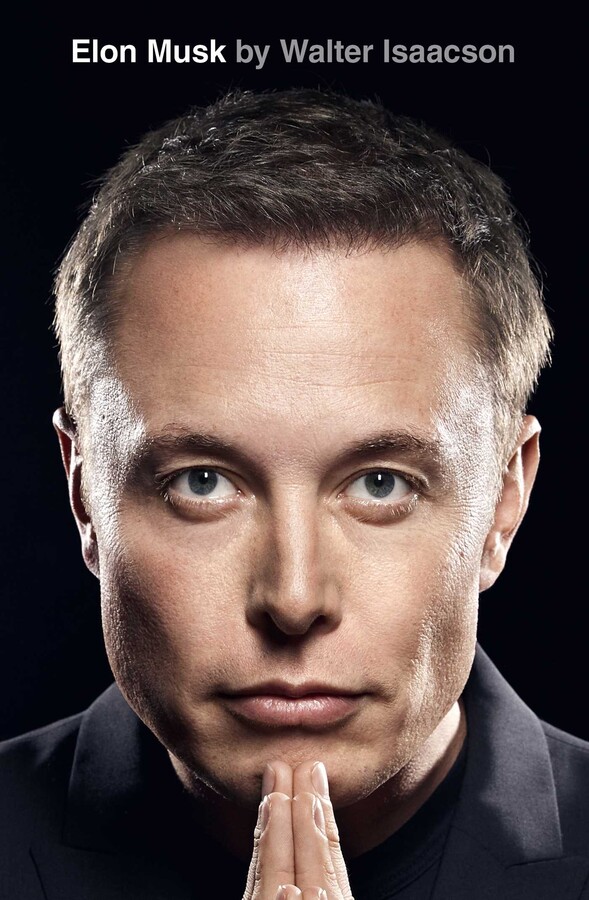
Elon Musk
Walter Isaacson
About the Author

Walter Isaacson
Questions & Answers
Elon Musk's early life experiences, particularly his challenging childhood in South Africa, shaped his vision for the future of humanity and technology in profound ways. His exposure to violence, bullying, and loss at a young age instilled in him a high pain threshold and an aversion to contentment, propelling him towards ambitious goals. His fascination with science fiction, like "The Hitchhiker's Guide to the Galaxy," and his immersion in strategy games honed his strategic thinking and vision for space exploration. His experiences with technology, such as the baggage-handling system at Denver airport, led him to envision a future with advanced robotics and automation. These experiences, combined with his belief in the importance of technology progress, fueled his mission to make humanity a multiplanetary species and harness artificial intelligence for the betterment of humanity. Musk's early life experiences thus laid the foundation for his relentless pursuit of innovation and his vision for a future where technology and human ingenuity can overcome the challenges of our time.
Elon Musk's success in creating groundbreaking companies like SpaceX and Tesla can be attributed to several key factors:
-
Risk-Taking: Musk's willingness to take significant risks, often going against conventional wisdom, has been central to his ventures. This includes his decision to start SpaceX despite the high failure rates of rockets and his push for electric vehicles in a market dominated by fossil fuels.
-
Visionary Leadership: His vision for the future, such as space exploration and sustainable energy, has inspired and driven his teams. His ability to articulate a compelling vision and set ambitious goals has been crucial in attracting talent and resources.
-
Technical Expertise: Musk's deep understanding of technology and engineering allows him to be involved in the technical aspects of his companies, from designing rockets to overseeing battery production. This hands-on approach ensures that his companies remain innovative and focused on technical excellence.
-
Execution and Efficiency: Musk's focus on efficient execution and cost reduction has been vital. He has pushed for vertical integration in manufacturing, which allows Tesla and SpaceX to control quality, costs, and supply chains.
-
Passion and Determination: His relentless passion and determination to achieve his goals, even in the face of setbacks, have been instrumental in overcoming challenges and driving his companies forward.
-
Culture of Innovation: Musk has fostered a culture of innovation and high performance within his companies, encouraging bold thinking and challenging the status quo. This has led to significant breakthroughs in technology and manufacturing processes.
Elon Musk balances his visionary goals with practical challenges by his relentless pursuit of efficiency and innovation. He demands high performance and efficiency from his teams, often pushing them to the brink of sanity, which he refers to as "hardcore." This approach, combined with his ability to challenge conventional wisdom and push boundaries, has led to groundbreaking advancements in electric vehicles and space travel. Musk's focus on cost reduction and in-house manufacturing, as well as his hands-on management style, allows him to maintain control over his vision while navigating the complexities of business operations. Despite his intense and sometimes confrontational leadership style, Musk's ability to attract and retain talent, as well as his willingness to pivot when necessary, has contributed to the success of companies like Tesla and SpaceX.
Elon Musk's work in space exploration and artificial intelligence raises significant ethical and philosophical implications. In space exploration, Musk's vision of making humans a space-faring species and preserving human consciousness in the face of existential threats is ambitious yet raises questions about the potential risks of colonization and the moral responsibility of humans to other life forms on Earth and in space.
In AI, Musk's focus on developing artificial general intelligence (AGI) and his concerns about AI safety highlight the need for ethical considerations in AI development. His belief in the potential dangers of AI surpassing humans and his efforts to promote AI safety through OpenAI and Neuralink underscore the importance of ensuring that AI benefits humanity. However, his approach to AI development, including his push for aggressive timelines and his willingness to take risks, raises concerns about the potential for unintended consequences and the need for robust safety measures.
The philosophical implications of Musk's work include the exploration of human purpose, the nature of consciousness, and the potential for technological transcendence. His projects prompt questions about the value of human life, the role of technology in shaping our future, and the potential for humans to merge with machines. Overall, Musk's work in these fields challenges us to consider the ethical and philosophical dimensions of our technological advancements and their impact on society.
Elon Musk's personal life and personality significantly influence his business decisions and the direction of his companies. His early experiences with survival and adversity in South Africa instilled resilience and a strong work ethic. His fascination with science fiction, particularly "The Hitchhiker's Guide to the Galaxy," led to a lifelong interest in space exploration and artificial intelligence, shaping his vision for SpaceX and Neuralink. Musk's personality, characterized by a relentless drive, competitiveness, and a willingness to take risks, propels him to push boundaries and achieve ambitious goals. His intense focus on mission-driven objectives, often at the expense of personal well-being, has led to rapid innovation in electric vehicles and space technology. However, his impulsive nature and tendency to challenge authority can lead to conflicts and challenges within his organizations. Overall, Musk's personal experiences and personality traits are central to his vision and the bold direction of his companies.